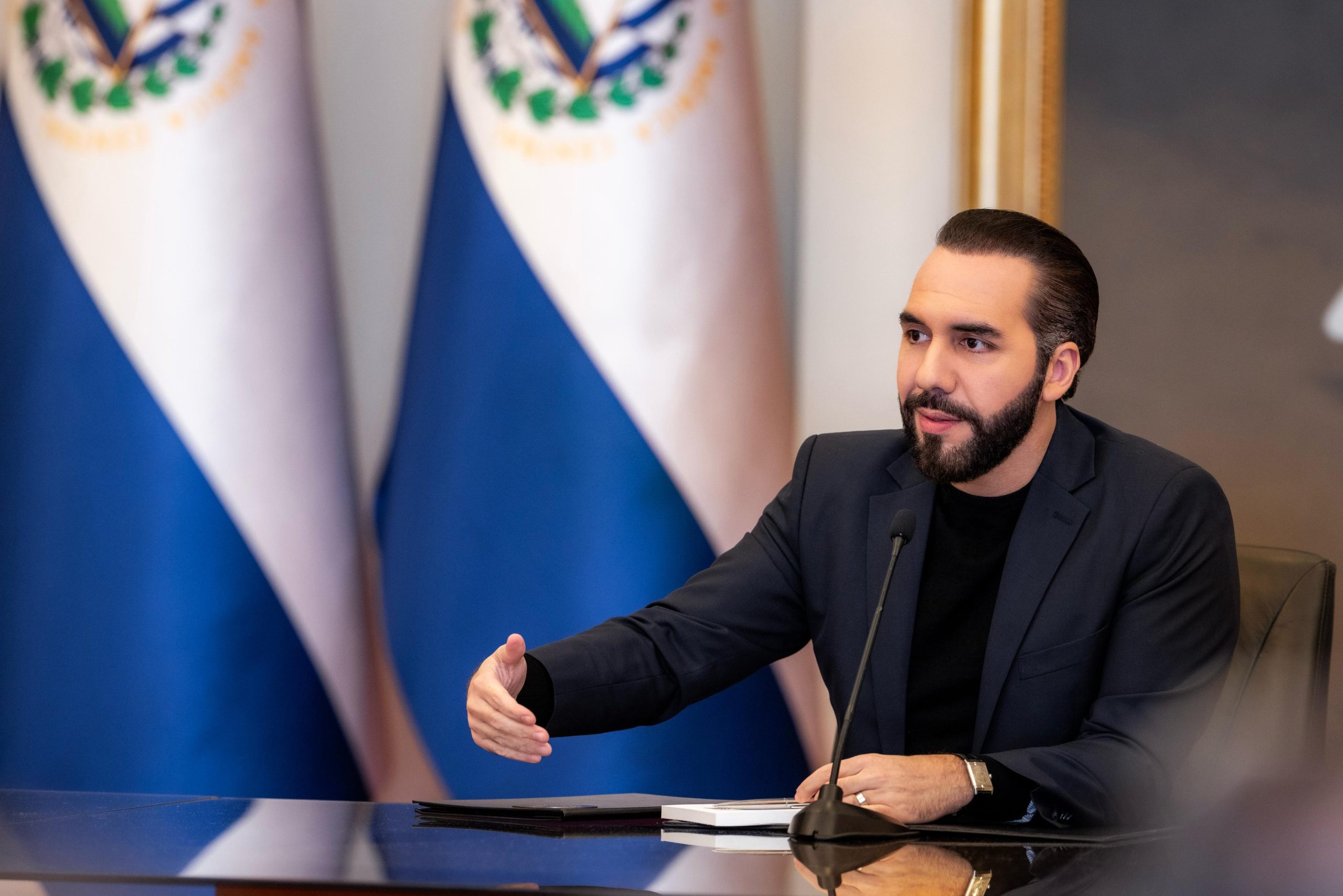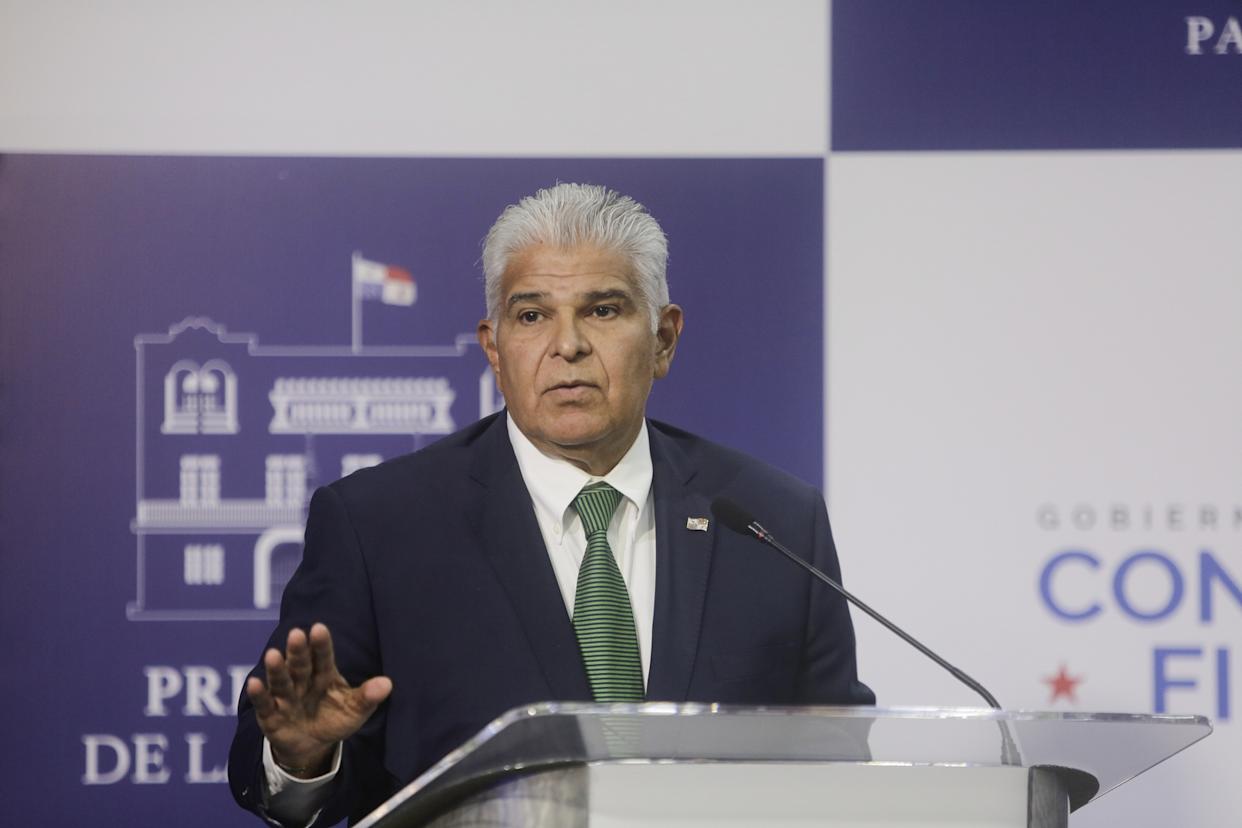Central America
Spanish Ex-Congresswoman Calls for ‘Bukele-Style’ Security Policies in Europe

Spanish lawyer and former congresswoman Macarena Olona believes that Europe’s decline in public safety can be reversed by adopting anti-gang policies similar to those implemented by Salvadoran President Nayib Bukele.
“Historic. The U.S. State Department has given El Salvador its highest travel rating, Level 1. Spain is at Level 2, considered a higher risk to travelers’ safety. Europe will only stop its decline by following models that have proven effective: Bukele’s security model,” Olona posted on social media.
Spanish newspaper Marca echoed Olona’s remarks, highlighting in an online article that “the arrival of Nayib Bukele to the presidency of El Salvador in 2019 changed the country forever.” That year, the president unveiled his anti-gang strategy.
“Thanks to the Territorial Control Plan, Bukele’s government arrested over 84,000 suspected gang members, driving violence in the country down to record lows,” Marca added.
Three years later, in response to a spike in homicides in March 2022, Bukele’s administration invoked a constitutional state of emergency to intensify the crackdown on criminal groups. The government also built the Terrorism Confinement Center, a high-security prison to hold thousands of inmates.
Sports
Shakira ignites El Salvador with near sold-out residency at Mágico González Stadium

The recently renovated Jorge “Mágico” González Stadium is rolling out the red carpet for Colombian superstar Shakira, whose string of concerts has sold out almost entirely, confirming the powerful bond between the artist and Salvadoran fans.
The scale of the experience begins as soon as attendees arrive at the venue. Outside the stadium, organizers have installed several photo spots so concertgoers can capture a souvenir from the major event.
Fans attending the Las Mujeres Ya No Lloran World Tour will witness a top-tier visual production, where technology and robotic lighting effects will shape an atmosphere that shifts dramatically from one segment of the show to another — moving from the intensity of ’90s rock to the festive explosion of urban pop.
Security and crowd management have been top priorities, with a coordinated operation aimed at ensuring smooth entry and exit, allowing spectators to focus solely on enjoying hits that have defined generations.
Beyond the music, the event marks a milestone for the country’s live-entertainment industry, positioning El Salvador as a destination capable of hosting artist residencies once reserved for cities such as Las Vegas or London.
The excitement is already visible across the capital: hotels are at full capacity and local businesses are riding the wave of enthusiasm sparked by the latest songs from the Colombian star.
Central America
Salvadoran fans plan birthday surprise for Shakira at historic show

The president of Shakira’s Fan Club in El Salvador was interviewed by Diario El Salvador on Saturday as she made her way to her entrance gate at Jorge “Mágico” González Stadium, ahead of the historic concert the Colombian superstar is set to perform in the country.
Before the first of the five shows that make up Shakira’s Salvadoran residency, the fan leader revealed that supporters had prepared a special surprise for the singer, who turned 49 on February 2.
“Today I’m here around the stadium with the props we made for her celebration, with postcards and her songs. We also have kits ready to sing ‘happy birthday’ to our She Wolf,” she said.
She explained that the group used social media to ask fans seated in the Ultra Platinum and Platinum sections to find them and pick up birthday pennants, party headbands, balloons and whistles. The idea is to sing “happy birthday” while Shakira introduces her band, offering what they describe as a special Central American welcome.
“For me, she has been a megastar since the first time I saw her in 1996. I saw her again in 2006, here at the stadium. Last year we traveled to Colombia three times to see her, and today I’m beyond excited that she chose El Salvador,” the fan said.
She added that visitors from across Central America and other countries have traveled for the concerts and will also have the opportunity to discover the country. “I’m very excited about everything she makes us feel,” she said.
Central America
Panama Will Not Be Threatened, President Says Amid Rising Tensions With China

Panamanian President José Raúl Mulino warned on Thursday that his country “will not allow itself to be threatened,” while expressing hope that tensions with China will ease following the cancellation of a contract allowing a Hong Kong-based company to operate ports along the Panama Canal.
Earlier this week, China, through its Hong Kong and Macao Affairs Office, said Panama would pay “a high price” for annulling the concession that has allowed a subsidiary of CK Hutchison Holdings to manage two ports on the interoceanic waterway since 1997.
The decision has angered Beijing, which, according to Bloomberg, has urged its state-owned companies to suspend negotiations on new projects with the Central American country.
“Panama is a dignified country and will not allow itself to be threatened by any nation on Earth,” Mulino said during a press conference when asked about China’s warnings.
However, the president added that he hopes the situation will not escalate. “I hope this does not spiral further; there is no reason for it to do so,” he said.
The ruling by Panama’s Supreme Court came amid pressure from U.S. President Donald Trump, who has threatened to reclaim the Panama Canal—built by the United States—arguing that it is “under Beijing’s control.”
China’s Foreign Ministry spokesperson Lin Jian warned on Wednesday that Beijing “will firmly defend the legitimate and lawful rights and interests of Chinese companies.”
-

 International5 days ago
International5 days agoEpstein Denies Being ‘the Devil’ in Newly Released Video Interview
-

 International5 days ago
International5 days agoSpain Seeks to Ban Social Media Access for Children Under 16
-

 International4 days ago
International4 days agoDelcy Rodríguez Takes Control of Chavismo as Venezuela Enters a U.S.-Supervised Transition
-

 International5 days ago
International5 days agoPetro Resumes Extraditions, Sends Top Criminal to U.S. Before White House Talks
-

 International5 days ago
International5 days agoMexico to Send Humanitarian Aid to Cuba Amid U.S. Threats Over Oil Shipments
-

 International4 days ago
International4 days agoHRW Warns Trump’s Influence Has Weakened Human Rights in Latin America
-

 International5 days ago
International5 days agoMexico Arrests Suspect in Shooting of Sinaloa Lawmakers
-

 International5 days ago
International5 days agoHypothermia Linked to Most Deaths During New York’s Recent Cold Spell
-

 International3 days ago
International3 days agoDíaz-Canel Calls for Talks With Washington Without Pressure as U.S. Tightens Oil Sanctions
-

 Central America3 days ago
Central America3 days agoPanama Will Not Be Threatened, President Says Amid Rising Tensions With China
-

 International3 days ago
International3 days agoVenezuela Debates Broad Amnesty Law Covering 27 Years of Chavismo
-

 International2 days ago
International2 days agoColombia to Send High-Level Delegation to Ecuador to Ease Trade Tensions
-

 Central America5 days ago
Central America5 days agoLaura Fernández Says She Will ‘Never’ Allow Authoritarianism in Costa Rica
-

 Central America3 days ago
Central America3 days agoBukele’s Approval Rating Climbs to 91.9% in El Salvador, Survey Shows
-

 Central America14 hours ago
Central America14 hours agoSalvadoran fans plan birthday surprise for Shakira at historic show
-

 International5 days ago
International5 days agoNFL Investigating Emails Linking Giants Executive to Jeffrey Epstein
-

 Sports12 hours ago
Sports12 hours agoShakira ignites El Salvador with near sold-out residency at Mágico González Stadium
-

 International2 days ago
International2 days agoSuper Bowl Halftime Show Puts Bad Bunny—and Immigration Politics—Back in the Spotlight


























